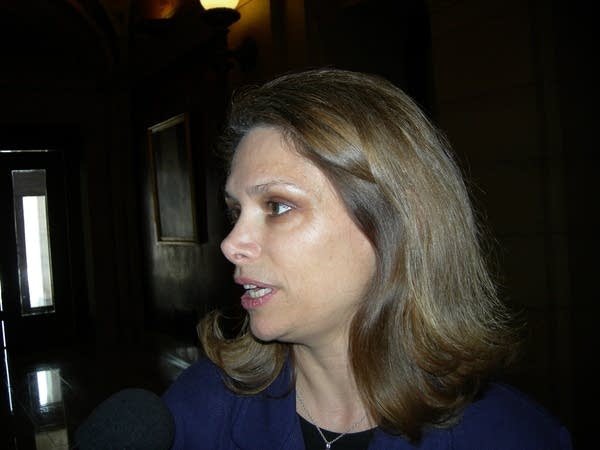No tax increases in DFL budget plan

Senate DFL leaders have been saying for weeks that Gov. Pawlenty and state lawmakers were going to have to make some tough budget choices. But those comments have been met with some skepticism since Senate DFLers have been leading the charge in recent years to increase taxes. This year Sen. Tarryl Clark, DFL-St. Cloud, says their spending plan will be more in line with Gov. Pawlenty's $34.4 billion two-year budget proposal.
"This is it. And unfortunately I think people have been led to believe that we're awash in new money and that we can do many good things. I think it's definitely the wake-up call that we can't do many good things; not with these kinds of dollars," according to Clark.
Finance officials say the state has $2.1 billion more to spend this year than the last budget cycle. Half of the surplus is left over from the current budget. The other half is expected to come in through 2009.

The DFL plan puts about a quarter of the surplus into a budget reserve to prepare for an economic downturn. Another quarter will go to schools with an emphasis on paying for special education. Colleges and universities and health and human services programs also get a share of the surplus.
Create a More Connected Minnesota
MPR News is your trusted resource for the news you need. With your support, MPR News brings accessible, courageous journalism and authentic conversation to everyone - free of paywalls and barriers. Your gift makes a difference.
Even though there is increased spending, several committee chairs aren't happy.
"It's a bare bones, inflation-only target," said Sen. Sandy Pappas, DFL-St. Paul. Pappas chairs the Senate Higher Education Committee.
Three-hundred-million dollars is earmarked under the Senate plan for higher education. But Pappas doesn't think it's enough and is worried tuition will go up even more than anticipated.
"In my mind, I'm able to keep the systems whole, but they're not getting enough resources to hold down tuition," she said. "If I had more money and could give them more, they could hold down tuition or I could put more money into financial aid, but there certainly isn't any new money for new initiatives for moving the state forward in the higher education area."
Pappas and other Senate DFLers repeatedly said throughout the day that the public and other interest groups need to understand that there isn't a lot of money available for new spending. Other chairs suggested plans for early childhood education and greater health care coverage will also be scaled back.
Some believe Senate DFLers are presenting a slimmed-down budget with the hopes that the public calls for increased spending to pay for new programs.

But Charlie Weaver says he doesn't think that strategy will work. Weaver, who is former chief of staff to Gov. Pawlenty, says he thinks most Minnesotans agree with the governor that a tax increase isn't needed.
"If a bare-bones budget is presented, but raises spending 9 percent, which is what the governor's does, most people aren't going to scream and say 'that's not enough spending,' because frankly that's more spending than most of them have," Weaver said.
Weaver is the CEO of the Minnesota Business Partnership which represents more than 100 of the state's largest companies. Some of those companies may be expected to pay more if the Senate Taxes Committee chair has his way. Sen. Tom Bakk, DFL-Cook, says he won't be able to use any of the surplus money for property tax relief. He says that means he'll look for other ways to reduce the property tax burden.
Bakk says two of the options are closing a tax loophole on businesses with operations outside the country and increased tax enforcement.
"If we're going to do any new tax expenditures that offer tax reductions for people, we will have to raise money on the opposite side of the ledger in the tax bill to pay for it so it remains revenue neutral," Bakk said.
Sen. Warren Limmer, R-Maple Grove, says he doesn't support any efforts to close the so-called loophole on foreign operating corporations. Limmer called the idea a tax increase that could drive jobs from Minnesota.
"The small number of businesses that operate under foreign-owned corporation status also provide a great number of jobs in the state of Minnesota. If we change the status for taxation on those businesses, will they simply move to another state?" he said.
Committees in the Minnesota Senate will now start working to fill in details of the broad spending plan.
DFL House Speaker Margaret Kelliher says her caucus will release it spending numbers next week.
